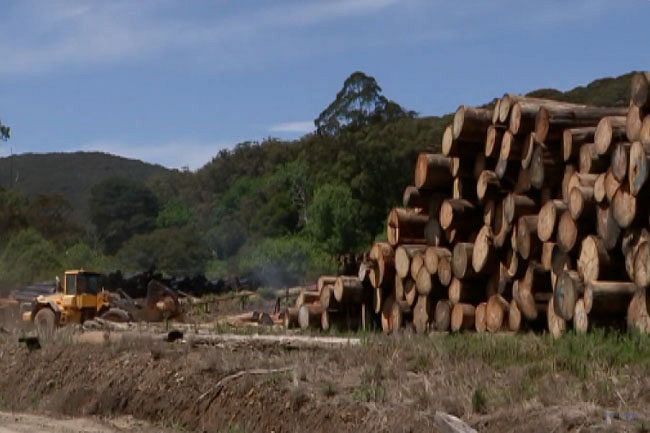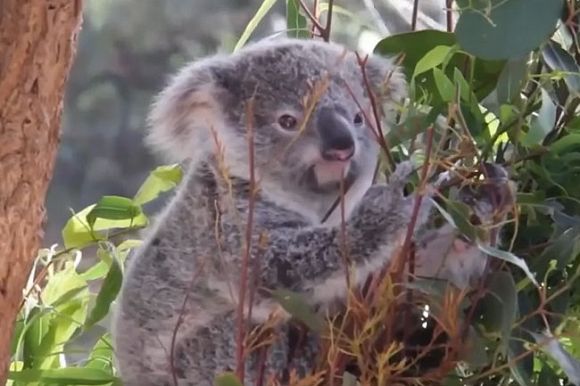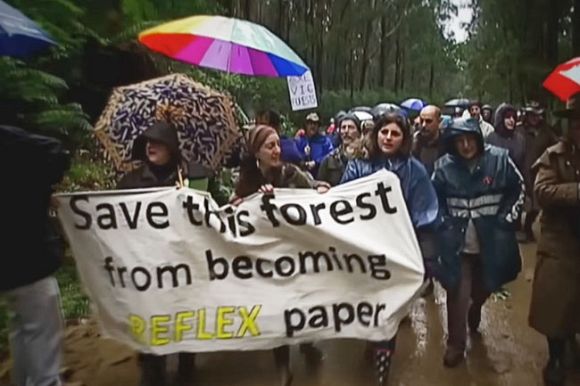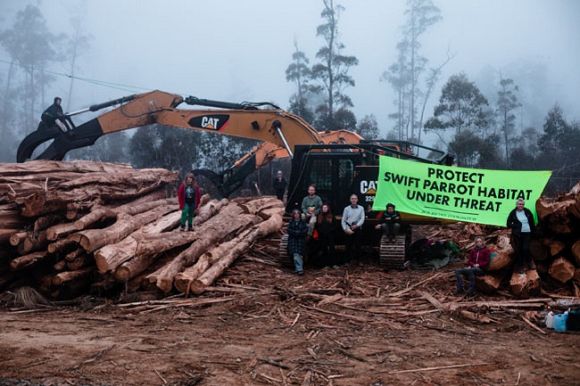For a party that should have the environment at the top of its priority list, the Greens seem to have abandoned biodiversity loss in favour of other policies, writes Sue Arnold.
AUSTRALIANS NEED to demand answers from political parties and governments to essential questions.
What happens when state and federal governments actively destroy our life support systems in the name of growth? When governments ignore the irrefutable evidence of impending environmental collapse?
How does the voting public force change?
Given recent judgements in the federal and NSW Land and Environment courts on forestry issues, solutions no longer lie with legislation but with political will.
With the increasing evidence of governments ignoring the global, national, regional and local environmental crises, supported by mainstream media, the public is being left in the dark. Deliberately.
That way there are no worries about political will. A few big demos here and there just pave the way for anti-demonstration laws. Taking environmental legal issues to courts of appeal and the High Court is too expensive and potentially fraught with extraordinary cost orders.
Although the international clarion call recognises climate change and biodiversity loss can’t be separated as they’re mutually dependent on each other, the devastation happening to Australia’s unique wildlife and ecosystems is non-news.
Mainstream media journalists and ministers no longer respond to emails on environmental issues. No contact details are available, only the odd Instagram, X handle or comment boxes.
The media is not alone. In the face of international warnings by the United Nations, the global scientific community, Pacific nations, King Charles and environmental organisations, Australia’s governments and major political parties continue to keep their heads firmly in the sand.
A recent report from the UN Environment Programme (UNEP) makes for sobering reading, summing up the critical issues Australian major parties continue to ignore.
The report states:
‘Cali/Nairobi, 24 October 2024 – Nations must collectively commit to cutting 42% off annual greenhouse gas emissions by 2030 and 57% by 2035 in the next round of Nationally Determined Contributions (NDCs) – and back this up with rapid action – or the Paris Agreement’s 1.5°C goal will be gone within a few years, according to a new UN Environment Programme (UNEP) report.’
Current commitments for 2030 are not being met; even if they are met, temperature rise would only be limited to 2.6-2.8°C.
At the latest Commonwealth Heads of Government Meeting (CHOGM) meeting in Apia, Samoa, Tuvalu’s Prime Minister said ‘planned fossil fuel expansions in nations such as Australia represented a “death sentence”’ for his nation.
He pointed to the inconsistency between Australia’s commitment to net zero by 2050 while ramping up fossil fuel exports.
According to the meeting report, Australia is second only to Russia based on emissions from fossil fuel exports with the largest pipeline of coal export projects in the world — 61% of the world’s total.
King Charles warned that climate change is not just an environmental catastrophe but a social one, as poorer nations pay the price of wealthy nations’ emissions.
An example of the deeply concerning zero focus on biodiversity and ecosystem losses can be found in the Australian Greens — the party that claims ecological sustainability is a major platform.
A quick check of the Australian Greens website doesn’t mention biodiversity loss except in the Northern Territory. The focus instead is on the cost of living and more recently a health scheme that defies common sense.
The website says the Greens plan to:
- establish 1,000 free local healthcare clinics across Australia, where you can see a GP, dentist, psychologist or nurse with no out-of-pocket costs; and
- there will be at least six local healthcare clinics in each federal electorate, meaning you’ll no longer travel for miles for the healthcare you need.
Aside from the fact the plan is to triple bulk billing and increase Medicare patient rebates by 20% for longer appointments, there’s zero evidence of a shred of support by the medical profession.
No costings are available for this pie-in-the-sky scheme. The shortage of doctors, nurses and other health professionals is not addressed.
According to the Royal College of General Practitioners, nationally, the predicted current shortage is 2,466 full-time GPs, growing to 5,560 by 2033. Australia is increasingly recruiting doctors from low to middle-income countries.
Further reports indicate there will be a shortage of more than 100,000 nurses by 2025.
Many conservationists believe it’s time the Greens changed its name as there’s no critical focus on the environment. Climate change impacts and biodiversity loss cannot be dealt with separately. Ignoring biodiversity loss as the Earth experiences the sixth mass extinction is beyond irresponsible when a party styles itself as “green”.
Given the appalling destruction of native forests, forest fauna and flora, the omission of any focused policy on koalas, for example, speaks volumes about the Greens distancing itself from biodiversity issues.
As always, koalas are the perfect example. An umbrella species for coastal forest ecosystems, their loss is highly significant.
Koalas and forest critters are being systematically eradicated so their habitat can be logged for power poles, timber for the fossil fuel industry and housing for the millions of immigrants proposed and supported by the major parties.
The proposed Great Koala National Park, according to Timberbiz, has created uncertainty for businesses that rely on supplies of native hardwood. The mid-north coast region provides over 70% of the nation’s power poles and approximately 80% of timber used in Australia’s underground coal mines.
Plus, the region is a key supplier of hardwood for the state’s housing construction industry.
This raises more questions. Should the destruction of our native forests and forest fauna be the cost of increased immigration?
If 80% of the timber is used in Australia’s underground coal mines, is the industrial logging of forests contributing to the fossil fuel industry?
Australians are experiencing cost of living pressures which are having major impacts, particularly on housing.
The Bureau of Statistics reports migration arrivals increased by 73% in 2022-23. The NSW Government predicts 45,200 new homes per year will be needed to house the growing population.
Aside from the carbon emissions of this massive increase in population, there are no calculations on the loss of timber required to build 45,200 houses annually in NSW alone. Or what the timber production required will mean for forest fauna and flora.
Australia’s major parties and governments are leading the world in environmental irresponsibility.
With no focus by mainstream media, or the Australian Greens, the burden is left to the scientific community and grassroots groups fighting furious battles to save what’s left of our wildlife and native forests.
Sue Arnold is an IA columnist and freelance investigative journalist. You can follow Sue on Twitter @koalacrisis.
 This work is licensed under a Creative Commons Attribution-NonCommercial-NoDerivs 3.0 Australia License
This work is licensed under a Creative Commons Attribution-NonCommercial-NoDerivs 3.0 Australia License
Support independent journalism Subscribe to IA.

Related Articles
- Adam Bandt and the Greens — the 2022 Election's dark horse
- The Greens: Paddling hard but missing the wave















